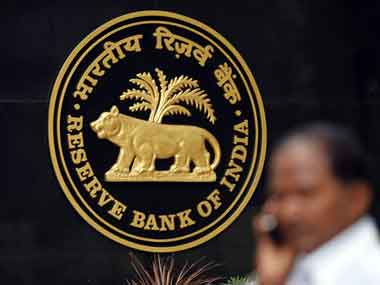Mumbai: The Reserve Bank of India today said the country’s banking sector has emerged resilient after a series of stress tests it conducted on the lenders.
“The stress tests carried out on banks, incorporating a range of shocks, revealed deterioration in their capital position as compared with the baseline scenario, but the banking system remained resilient even under extreme stress scenarios,” the apex bank said in its Financial Stability Report (FSR) released today.[caption id=“attachment_360925” align=“alignleft” width=“380” caption=“The RBI logo. Reuters”]  [/caption]
The RBI also put selected banks’ derivatives portfolios through a series of scenarios and sensitivity stress tests, which revealed they are well-positioned to manage the resultant market risks, the report said.
However, the FSR warned the operating conditions for banks will continue to remain challenging because of weakening global economic outlook, adverse domestic macroeconomic conditions and policy uncertainties, this fiscal.
But it said developments in the Eurozone are expected to have a limited impact on Indian banks as the country’s banking sector is dominated by domestic. The de-leveraging strategies adopted in the West can have limited impact.
Banks remain resilient to credit, market and liquidity risks and would be able to withstand macroeconomic shocks, given their comfortable capital adequacy positions, it added.
On the non-banking lenders, the report said it applied restrictions on the gold loan companies as they exhibited high dependency on the banking system for their resources which could pose risks in case their business model falters.
It noted with concern the practice of issue of non-convertible debentures by gold loan companies, which have the character of public deposits making the companies akin to deposit-taking NBFCs.
The RBI felt the muted economic activity and difficulties abroad may lead to further deterioration in asset quality for banks but the situation is not alarming.
The Basel-III capital adequacy norms to be implemented in phases by FY18, which aim at fortifying the capital bases of banks, may not hurt so much given our banks’ strong capital adequacy but will throw up challenges, it added.
PTI


)
)
)
)
)
)
)
)
)



